Most Asked Artificial Intelligence Interview Questions with Answers
Are you looking for Artificial Intelligence Interview Questions? Are you preparing for Artificial Intelligence interview for job? This is the right place you have come. Here, we will guide and help you to enhance your Artificial Intelligence skills, and to be prepared for job.
Here, we are providing a good collection of real-world Artificial Intelligence Interview questions which are generally asked in big companies such as Google, Microsoft, Facebook, Oracle, and Amazon etc. Each question has a perfectly written answer. So, let’s start.
Que 1) What is Artificial Intelligence? / What is the definition of Artificial Intelligence?
Artificial intelligence is a field of computer science and technology that is mainly dealt with building intelligent machines or computer systems, capable of simulating or mimicking human intelligence and behavior. Here, intelligent machines are defined as the machines that can behave like a human, think like a human, and also capable of decision making just like human. Artificial Intelligence is made up of two words, “Artificial” and “Intelligence,”. It means the “man-made intelligence or thinking ability.” The machines which we create using Artificial Intelligence can work and react like humans without human intervention.
Some of the important applications of Artificial Intelligence are as follows:
- Natural Language Processing (NLP)
- Speech Recognition
- Images and Patterns Recognition
- Customer Service Satisfaction
- Recommendation Engine etc.
Artificial intelligence facilitates us to create a machine with the programmed algorithms that can perform tasks, and work on its own without human intervention. Since the evolution of Artificial Intelligence, it has accepted and rejected a lot of methodologies, such as mimicking the brain, followed human problem-solving model, formal logic, imitating animal behavior, and massive knowledge libraries etc.
In the first decades of the twenty-first century, mathematical-statistical machine learning highly dominated the Artificial Intelligence. Then, the most of the sub-fields of AI research are based on the specific aims and applications of certain techniques like reasoning, learning, sensing, natural language processing, knowledge representation, planning, and the ability to move and manipulate objects. But, the long term goal of Artificial Intelligence was always general intelligence (just like the human capability to solve any problem). After that, the AI researchers have adapted and integrated a wide range of problem-solving strategies such as search and mathematical optimization, statistics, formal logic, artificial neural networks, probability, psychology, linguistics, philosophy, and economics methodologies etc. to deal with these issues.
Que 2) What is the history of Artificial Intelligence?
Nowadays, as we see Artificial Intelligence is an emerging and very trending technology but it is not a new technology at all for researchers. This technology is much older than we can imagine. Even there are some myths of mechanical men in Ancient Greek and Egyptian history. But, here we are going to provide the history of new AI generation:
Very Early Stage (1943-1950)
- 1943: Warren McCulloch and Walter Pits proposed a model of artificial neurons in 1943. This is known as the first work recognized as AI.
- 1949: In this year, Donald Hebb demonstrated an updating rule for modifying the connection strength between neurons. This rule is now called Hebbian learning.
- 1950: Alan Turing an English mathematician proposed Machine learning in 1950. He published a paper named “Computing Machinery and Intelligence” in which he proposed a test. The test could check the machine’s ability to exhibit intelligent behavior equivalent to human intelligence, called a Turing test.
Early stage of evolution of Artificial Intelligence (1952-1956)
- 1955: Allen Newell and Herbert A. Simon created the “first artificial intelligence program” named as “Logic Theorist”. This program proved 38 of 52 Mathematics theorems, and provided a new and more elegant proof for some theorems.
- 1956: The word “Artificial Intelligence” was first adopted by American Computer scientist John McCarthy at the Dartmouth Conference. This was the first time when the term Artificial Intelligence used in an academic field.
- At that time some high-level computer languages such as FORTRAN, LISP, and COBOL were invented and the enthusiasm for AI was very high at that time.
Mid stage also referred as golden years (1956-1974)
- 1966: The researchers proposed a developing algorithm which could solve mathematical problems. Joseph Weizenbaum created the first chatbot in 1966, named as ELIZA.
- 1972: The first intelligent humanoid robot was built in Japan named as WABOT-1.
The first AI winter (1974-1980)
The duration between years 1974 to 1980 was called the first AI winter duration. Here, the term AI winter refers to the time period where computer scientist faced a severe shortage of funding from government for AI researches. During AI winters, an interest on artificial intelligence was decreased.
A boom of Artificial Intelligence (1980-1987)
- 1980: Overcoming the AI winter duration, AI came back with “Expert System”. Expert systems were programmed that could emulate the decision-making ability of a human expert.
- 1980: The first national conference of the American Association of Artificial Intelligence was held at Stanford University.
The second AI winter (1987-1993)
The duration between the years 1987 to 1993 was called the second AI Winter duration. This was a tough phase for researchers. Again Investors and government stopped funding for AI research because of the high cost, and not efficient results.
The emergence of Intelligent Agents (1993-2011)
- 1997: In 1997, IBM Deep Blue computer beat then world chess champion Gary Kasparov, and became the first computer to beat a world chess champion.
- 2002: AI was used first time in a home appliance in the form of Roomba, a vacuum cleaner.
- 2006: AI got introduced in the Business world. Companies like Facebook, Twitter, and Netflix also started using AI.
Deep learning, big data and artificial general intelligence (2011-present)
- 2011: In 2011, an IBM’s developed system named Watson won jeopardy, a quiz show, where it had to solve the complex questions as well as riddles. Watson had proved that it could understand natural language and could solve tricky questions quickly also.
- 2012: Google launched an Android app feature “Google now”, which was able to provide information to the user as a prediction.
- 2014: In 2014, a chatbot “Eugene Goostman” won a competition in the infamous “Turing test.”
- 2018: An IBM developed system “Project Debater” debated on complex topics with two master debaters and performed extremely well.
- Google demonstrated an AI program “Duplex” which was a virtual assistant. It had taken a hairdresser appointment on call, and lady on other side didn’t notice that she was talking with the machine.
Nowadays, AI is developed to a remarkable level. Now, it uses the concept of data science, deep learning, big data, and are now trending like a boom. Nowadays, big IT giants like Google, Facebook, IBM, Amazon etc. are working with AI and creating amazing devices. We can see that the future of Artificial Intelligence is going to a new level and surely will come with more intelligence than humans. Most Asked Artificial Intelligence Interview Questions
Que 1) What are the 10 most powerful examples of Artificial Intelligence we use today?
Following is a list of some of the most powerful examples of Artificial Intelligence that we may not realize that are AI-powered:
Machine or system translations
There is a lot of language translation software nowadays, either based on written or spoken text. They rely on artificial intelligence to provide and improve translations. This approach is also used in some functions such as automated subtitling.
Web search result
Search engines also use AI to learn from the vast input of data provided by the users to provide relevant search results.
Online shopping and advertising
This is the most popular use of AI nowadays. The shopping apps use artificial intelligence to provide personalized recommendations to customers, based on their previous searches and purchases or other online behavior. AI is very important in e-commerce websites for optimizing products, planning inventory, logistics etc.
Digital personal assistants
Smartphones use AI to provide relevant and personalized services. There is a virtual assistant which answers questions, provides recommendations and can also help in daily routines.
Smart homes, cities and infrastructure
AI proposed smart thermostats learn from our behavior to save energy. AI can also be used to develop smart cities hope to regulate traffic to improve connectivity and reduce traffic jams.
Cybersecurity
AI systems enhance the level of cybersecurity to fight cyberattacks and other cyber threats based on the continuous input of data, recognizing patterns and backtracking the attacks.
AI-powered safety functions cars
Now although self-driving vehicles are not yet standard, but cars already use AI-powered safety functions. The EU has for example helped to fund VI-DAS, automated sensors that detect possible dangerous situations and accidents.
Fighting fake news and disinformation
There are some AI applications that can detect fake news and disinformation by mining social media information. It looks for the words that are sensational or alarming and identifying which online sources are deemed authoritative.
Health and disease diagnostics
AI can be used to analyze large quantities of health data and to discover the patterns that could lead to new discoveries in medicine and ways to improve individual diagnostics.
AI against Covid-19
At the peak of Covid-19, AI has been used in thermal imaging in airports and elsewhere. It can also be used to recognize infection from computerized tomography lung scans. It can provide data to track the spread of the disease. For example, an AI program has been developed for answering emergency calls to recognize a cardiac arrest during the call.
Transport
AI can improve the safety, speed and efficiency of rail and other transport traffic by minimizing wheel friction, maximizing speed and enabling autonomous driving.
Increased Manufacturing
AI can help manufacturers to manufacture fast by enabling robots in manufacturing, optimizing sales paths, or by on-time predicting of maintenance and breakdowns in smart factories. Most Asked Artificial Intelligence Interview Questions
Food and farming
AI can be used to ensure healthier food by minimizing the use of harmful fertilizers, and pesticides. It helps in productivity and reduces the environmental impact. AI enabled robots can be used to remove weeds, and lowering the use of herbicides. It can also be used in animal husbandry to monitor the movement, temperature and feed consumption of animals.

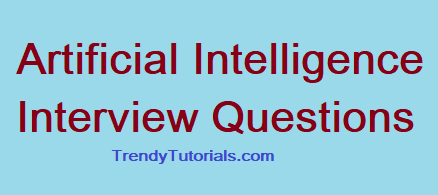
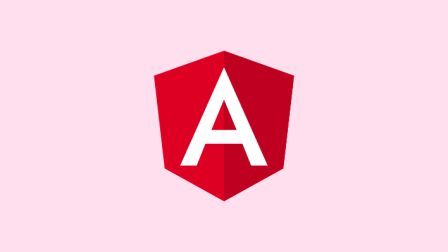
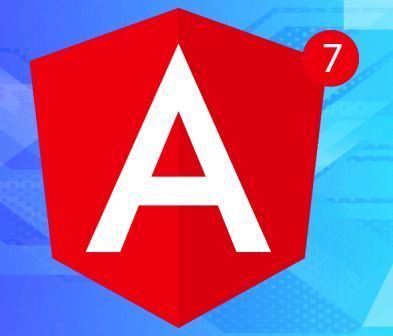

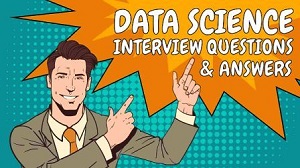
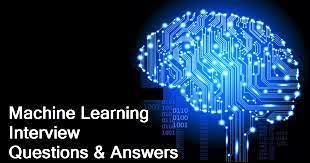

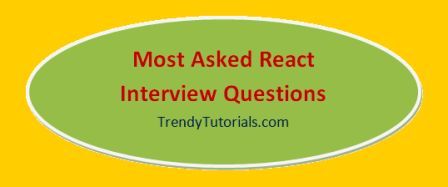
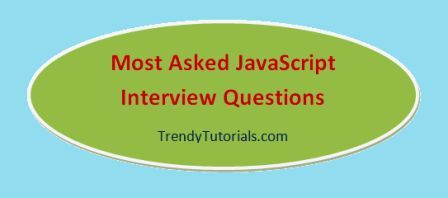
Pingback: Most Asked Cloud Computing Interview Questions -